Solar Summer + Last Quarter: Resolutions
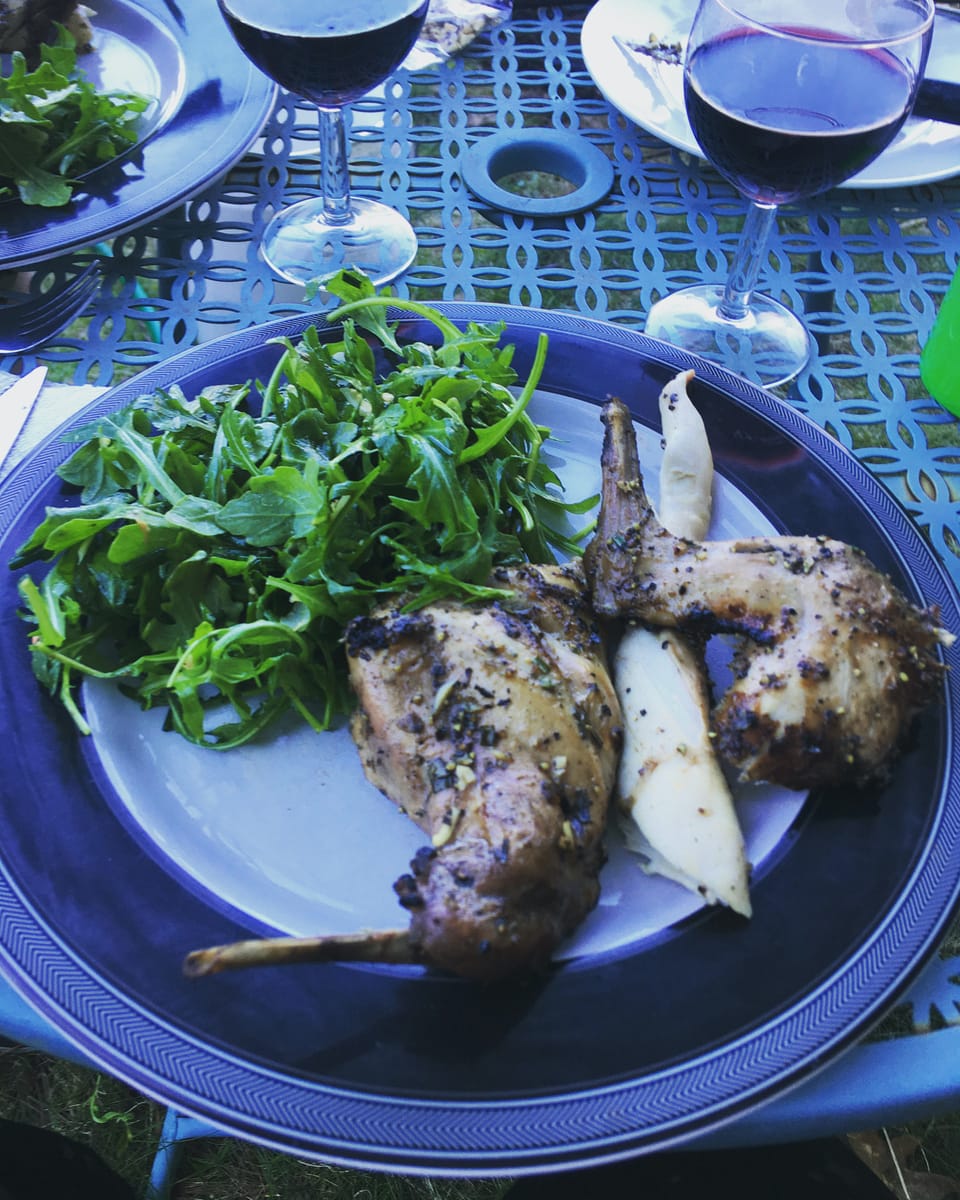
Hello. It's Friday, and we are now into the longest days and shortest nights. My observance of Calan Mai (Beltane) on Wednesday was more subdued than usual due to a couple of physical health interferences. But I still gathered flowers for my owner, joined him on a few farmstand visits to spend a little more time with plants, collected pea shoots from our garden, assisted with preparing our ritual dinner of fire-roasted lamb and greens — and conducted my welcoming rite for the new season.
I've alluded to these welcoming rites in the past, I'm sure, but for those unfamiliar, as the household's witch I am responsible for a small ceremony on each holiday of the Wheel. The steps and tools I need vary according to which holiday it is, and some details I will not tell others about; however, I've performed the eight welcoming rites consistently on schedule for at least the six and a half years that my name's been written in the Devil's book. Maybe longer. The rites have been devised by my own intuition and my owner's input, though they are heavily inspired by a few similar multi-person, Wiccan-esque rites I took part in during university.
One component that I took from those rites was for Calan Gaeaf (Samhain). On that night, I write a list of things that I wish to remove from my life for the next 12 months, and I cut up the list into individual scraps of paper, and I burn the scraps at a certain point in the welcoming rite. As soon as I first decided to adopt this practice on my own, though, I also knew I wanted to balance it somehow with Calan Mai, the fire holiday situated on the Wheel's opposite side. So what I've now done every Calan Mai is to write a different list of things I wish to bring into my life for the next 12 months, and I read this list during the welcoming rite and save it afterward.
Thus, on two overlapping cycles, I have a set of annual resolutions that are not linked to the Gregorian New Year (which I generally consider a bad time of year to try changing habits). Each month on the Last Quarter I briefly meditate upon the things I said I would remove last Calan Gaeaf, and I silently confer with myself about how I've fared at getting rid of those things, and I strategize for the areas where I still struggle. Each month on the First Quarter I briefly meditate upon the things I said I would welcome last Calan Mai, and I likewise confer with myself about how that process has gone and what would make it go better.
Today's post will not be as long as I usually manage for a holiday week, but it's half theory and half demonstration. As I've just adopted new Calan Mai resolutions, I have some thoughts about why "self-improvement" goals do form a legitimate and necessary part of mental self-care and trauma healing; and I'm also going to list what all these latest resolutions are, since they themselves are no secret, and I'll explain a little of why I chose to pursue each one.
What we talk about when we talk about shadow work
I don't describe myself as a shadow worker, or speak of shadow work as part of my typical witchcraft focuses. I actually didn't even know what the phrase really referred to until sometime last year; and I'm still not certain whether the phrase shadow work has been around for decades and I just never heard of it for a while, or whether the phrase is a relatively new online invention and since I'm increasingly less online I naturally missed this development. All I know is that until a dear friend defined the phrase for me, shadow work existed in a soup of other popular witch vocabulary that I don't personally use because I wouldn't be sure what I meant, such as manifesting, charging, or channeling.[1]
However, the definition I received for shadow work was rather interesting in the end. In my own words, I now understand it as a way that some people refer to ritually engaging with one's own psychological challenges, not only on a path of trauma healing but also with a willingness to confront genuine weaknesses and failings. It sounds like a ritual modality where the emphasis obviously shouldn't extend to self-punishment, but it does extend to accountability and healthy self-awareness.
What I still don't understand about shadow work is which tools or practices people actually perform this work with — but I'm sure there's quite a variety. And even with my reliance on talk therapy for a good portion of my mental healthcare at the moment[2], I suspect that at some point I ought to explore more of what other ritualists are doing when they engage in something they describe as shadow work. One way or another, the work strikes me as potentially very important.
This is because even as a satanist, opposed to (spi)ritual politics of guilt and penance, I do not believe that refusal to bow to a carceral god should be confused with an unwillingness to alter one's personality. Such unwillingness is a major problem with LaVeyan satanism and frankly also with all capitalist-consumerist flavors of witchcraft or paganism. Their ideologies are all merely variants on the virtue of selfishness — that you owe no one anything, that you must look out for yourself no matter how many bonds you sever in the process.
You can't fully love others until you love yourself, goes that mindset. Such words are perfect for selling bath bombs, but while they're not altogether false, they only tell half the story: we also can't fully love ourselves until we love others.
It isn't possible for any one person to self-generate all the love they will need for themselves and then shine that love like a one-way beam toward those around them. It isn't possible for a social species like humans. Our hearts, minds, souls — whatever word you wish to use — don't work that way. Whether directly or indirectly, we can die of isolation. Thus I've come to believe it's each of our responsibilities to give some (albeit not all) of our love to others, even when our self-love is lacking. And the beauty of our interconnectedness, our relatedness, is that when others adopt a similar practice, our lack of self-love resolves itself because we are fueled by others' love.
None of this should be confused with pathological codependence. The goal is balance. But to love others well, and to further the likelihood that they will return the love we've offered, we will not find the right balance in growing our personhoods separately. We must be willing to grow together, to synthesize new behaviors that benefit one another. It isn't enough to say that we can conduct our lives in parallel and then only interact in the areas where we're compatible; that's reasonable for acquaintances, but it's not sustainable for close kith and kin.
I owe it to my most closely loved ones to become a better person for them. That's a complete phrase: better person for them, meaning there isn't some absolute, measurable quantity of goodness that I can achieve, but rather that there is goodness in relation to what that person needs from me. And so to the extent that this person matters to me, I should improve myself by those relational metrics.
This act of improvement is undertaken most powerfully on Calan Gaeaf, when I choose to shed maladaptive and undesired things. However, we do not do or become better by simply avoiding things we've assigned negative value. Hence the generative, constructive counterpoint on Calan Mai: the choice to actively cultivate things I've come to understand as positive.
What makes a worthy resolution?
Even having this concept of shadow work and believing that I have a duty to transform myself in a social context, I must simultaneously reiterate the importance of avoiding a punitive mindset. As I've written before, purification can mean something different than the removal of "sin"; likewise, changing our behaviors should not require us to inherently view our old behaviors as evil, and there is no merit in trying to undergo a transformation that our body-minds aren't ready to experience. Nothing can be forced. No change counter to our wills[3] can really stay, as the cognitive dissonance required will either cause the change to revert or cause our wills to adapt, and in the latter case there is a risk of trauma.
Therefore, when I adopt a new annual resolution, I try to resolve only that which is achievable — both in raw logistics and in my psychological capacity. Sometimes I make mistakes; there are a couple of things I chose to shed this past Calan Gaeaf that I'm still having a royal hell of a time shedding, because I misjudged how to create the right conditions for breaking certain self-perpetuating cycles. However, it's still imperative for me not to rake myself over the proverbial coals on this front. If I've still failed at cutting those things out of my life by next Calan Gaeaf, I will simply have to try again, maybe with better preparation or with reworking my intentions. And it's also possible that some of the things I've decided to bring in this Calan Mai will make it easier to get rid of other things — crowding the undesirable out with the desirable.
Precise language also matters when the resolution is made. The words I choose to conceive of my future actions will affect the way I approach those actions. Consider the classic New Year's resolution of "getting in shape." I've never used that phrase in my own resolutions, because it suggests an objective standard of health without supplying any criteria. And I wouldn't even say "getting in better shape," which passes too much judgment on the body I currently have — nor the dreaded "losing weight," because even though I'm well aware doing certain things that would materially improve my health also would potentially make me weigh less, my weight itself is morally neutral and I refused years ago to ever again rate my health with a three-digit number. Besides, I could be capable of stunning feats of strength, endurance, flexibility, and agility, and still weigh almost exactly what I weigh now, depending on what my diet and exercise routine happened to be.
Hence, I know I would like to make changes that would likely produce positive health outcomes, but my resolutions are always to make those changes as their own goal. So one of my goals this Calan Mai is "move routinely," adapted from previous years' goal of "move more." I do not intend to be capable of lifting a certain size object at the gym, nor to be capable of running a mile in a certain time, but "move more" is still measurable and possible. I know how often I generally get physical exercise since I started working remotely; year by year, I've been increasing the amount, albeit with interference from acute (and maybe chronic) illnesses. Since I anticipate reasons why my amount of movement may plateau these next 12 months, I don't think moving "more" is even quite realistic here, but at least using a consistent schedule for existing movement feels possible.
And to be perfectly honest, though this resolution involves my body, my so-called physical fitness, it's not about improving my body out of some obligation to others or even an obligation to myself. My body is whatever it is, and it already has a few subtle disabilities that no amount of exercise will cure. If I tried to move more because I believed that a "perfect" figure existed or that it would save me from disability and disease, then I would just be a body fascist — I feel so cautious around bodybuilder culture for that reason. So rather than think that way about my body, my resolution to move more is about the mind that my body carries within those pale, delicate nerves. Kinetic activity helps soothe my anxiety, which in turn brings me more resilience, which helps me further heal from trauma. And the more that I can do for myself in this vein, the better I can support kith, kin, and community as I've hoped.
In any event, despite my "move more" resolution, most of my resolutions do not have such obvious physical health implications, and I've only raised this one for special analysis here because of how I've tried so hard to set it apart from trickier, unhelpful versions of the same idea that I hear from other people (around New Year's or around any season). I will now list this Calan Mai's other resolutions to give a clearer picture of what I wish to bring into my life these next 12 months.
This Calan Mai
Between this Calan Mai and the next, I intend to work toward and welcome the following things:
-
Write enough to feel proud, and ideally finish [redacted writing project] and the current round of revisions on [also redacted]. My goals as a published writer are technically more granular than this, but ritually I try to set this resolution each year in broad strokes. Once the redacted project(s) are finished, I also probably won't have any ritually-imposed deadlines for a while — "write enough to feel proud" is all I'll need.
-
Write poems. After an enthusiastic poetry habit in my teen years and earlly adulthood, I've tried to get back to it before, failed, held off for the past few years, and am now going to try again. I'll see if I can manage one poem per month around the Full Moon. It probably won't be published here, but maybe if it's quite pertinent I'll decide accordingly.
-
Morning rites. That is, inspired by Robin Wall Kimmerer's writing I want to develop a grounding, gratitude-giving practice that takes place each morning before I've done much else. I want to put my worship of my god in his solar form front and center when I rise, along with reverence for the life and fertility that the Sun creates on the earth. I've experimented for two days now and will keep trying. So far I've intuited that the rite has to wait until I've emptied my bladder, freshened my breath, and brushed my hair, but many other things may need to wait their own turn until I've already faced the Sun, raised my hands, and offered thanks. This will, I hope, break my habit of checking too many things on my phone before I've even gotten out of bed. More thoughts on that some other week, perhaps.
-
Welcome healing and safety. This refers to continuing my therapy sessions around anxiety and trauma, and the cognitive-behavioral re-training that is asked of me when I'm outside those sessions. It now also refers to taking my one psychiatric medication, buspirone, and letting it do its work.
-
Move routinely. As described earlier. I hope that once I finish some physical therapy this month I'll be able to return to a routine of (careful, low-pressure) gym visits twice a week, taking walks at least once a week, Western fitness yoga[4] at least once a week, and doing significant outdoor work or hikes at least once a month.
-
Find group music. Last year, I resolved to welcome music-making back into my life after its own long hiatus; I resolved to do this both alone and in groups. I found a sort of middle way as my owner and I bought, of all things, a home karaoke setup. However, though we've thus sung together and had guests join us sometimes, I think of it as mostly a solo activity insofar as the backing instrumentation is pre-recorded and it's usually just one person singing over it. So now I'm hoping that this year I'll either find a live group singing context again, similar to how I performed a cappella in university — or I'll finally realize my dream of forming a casual but committed band.
-
Explore more esoteric/occult lore from the "Western" ceremonial magic tradition. This is the counterpoint to last year's quest to engage in more direct animism. I've just worked a lot with the earth-based side of my practices, whereas now I would like to become significantly more versed in matters like alchemy. I have a few resources I'm going to avail myself of for this purpose.
-
Eat nourishing food. An accompaniment to this past Calan Gaeaf's resolution to eat refined sugar products on only very specific occasions. That resolution isn't going as I'd like, so while I haven't abandoned it, I know it needs help. I'm in a better economic position to feed myself highly nutritious meals, so I'm going to try doing so, which will ideally reduce my dependency on sugar boosts to compensate for low energy or mood.
-
Adjust my commitments to the local kink scene. I'm not overextended there, but I've lately come to feel that I'm not spending enough of my time there on activities that would better help me make the connections I seek — and I'm spending a little too much time on specific responsibilities that have become difficult to fulfill. It's time for me to shuffle things around to welcome in some things I've allowed to languish.
-
Attempt pregnancy. This is after many years of resolutions to make myself ready for that attempt. Now I am ready.
Ten resolutions are a little higher than I normally try, but it also happens that I fulfilled a good deal of resolutions for last Calan Mai or the one before, and I'm in a vibrant enough mental state that I'm hungry for fresh challenges. There are also a few resolutions here that are still outstanding from previous years, and I'm not yet prepared to abandon them.
In conclusion
As happens each year, I will see where my Calan Mai resolutions lead me, and review my progress each First Quarter. I would also be curious to know what fellow ritualists happen to practice along similar lines. And by no means do I think that my system here is vitally necessary for all people to adopt, but if it appeals to you in comparison to other "self-improvement" models, I don't feel any possessiveness around it; and hopefully what I've explained here today is at least a good practical demonstration of what some of my witchcraft's seasonal liturgy affects in day-to-day life.
[1] I don't want this statement to come across as derisive. Although I do mistrust vague words like these because they can be the hallmarks of cultish, for-profit practitioners or writers, from a pragmatic perspective I also imagine there are people who find this language convenient to describe some quite specific things — and I'm just not sure yet which things, so it would make little sense for me to try communicating with the same language on my end. I worry that even this footnote could be read in a passive-aggressive tone, but hopefully you understand what I'm getting at.
[2] I'm also on a waitlist for a somatic healer, which I may have thoughts about some other time.
[3] In this vein despite my numerous complaints with Aleister Crowley I do agree with what I understand of his framing of True Will in Thelema.
[4] Maybe I should write about this sometime, too. I'm debating.
Thank you for the read. Since I think I haven't asked in a while, I will note here that writing these posts does take up time that could be spent writing things under my professional identity for a more immediate paycheck — and although my household's circumstances are finally at a point where we really make ends meet, writing doesn't pay me nearly enough that I could quit my soul-sucking day job. If you wanted to help me edge the slightest bit closer to making a living this way, or to recoup the monthly cost of sending this newsletter out (I'm still losing a few dollars a month to it), please consider a paid subscription. There are various tiers with different benefits beyond getting to read pay-locked posts.
Either way, the next couple weeks of posts are still going to be open to all readers like this one. Coming soonest is a post about the mystery of free will. After that, I'm going to reflect on my interest in traditional wool-dyeing methods.
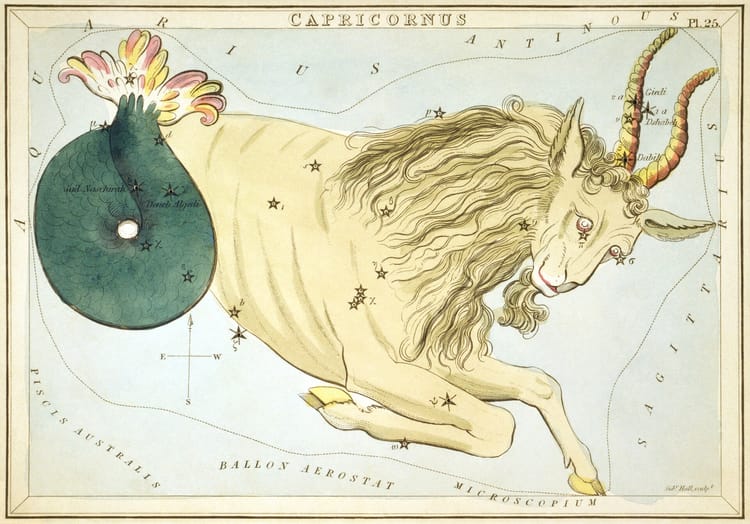
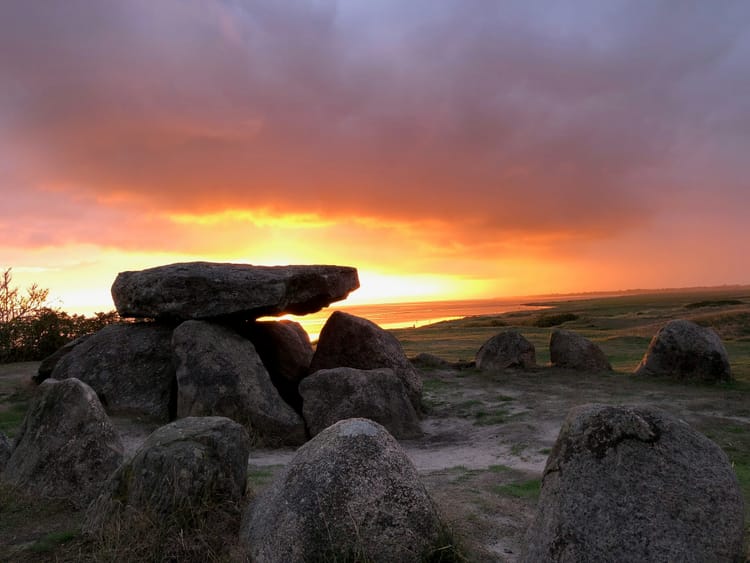
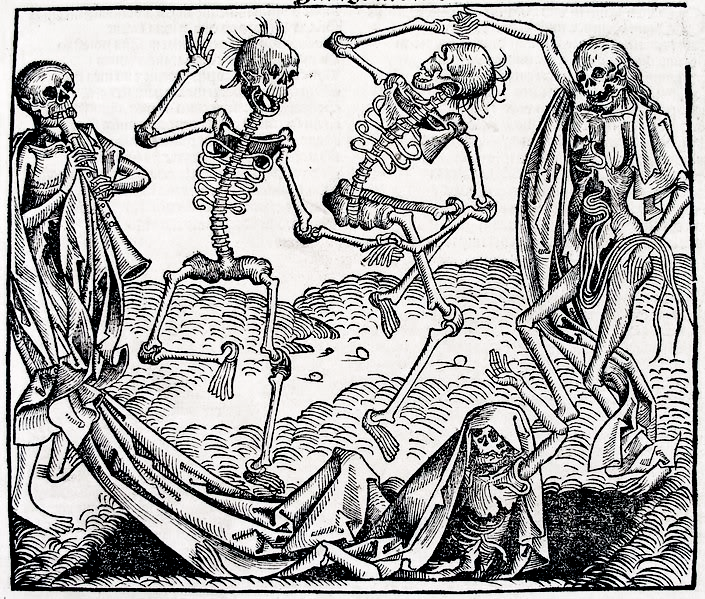

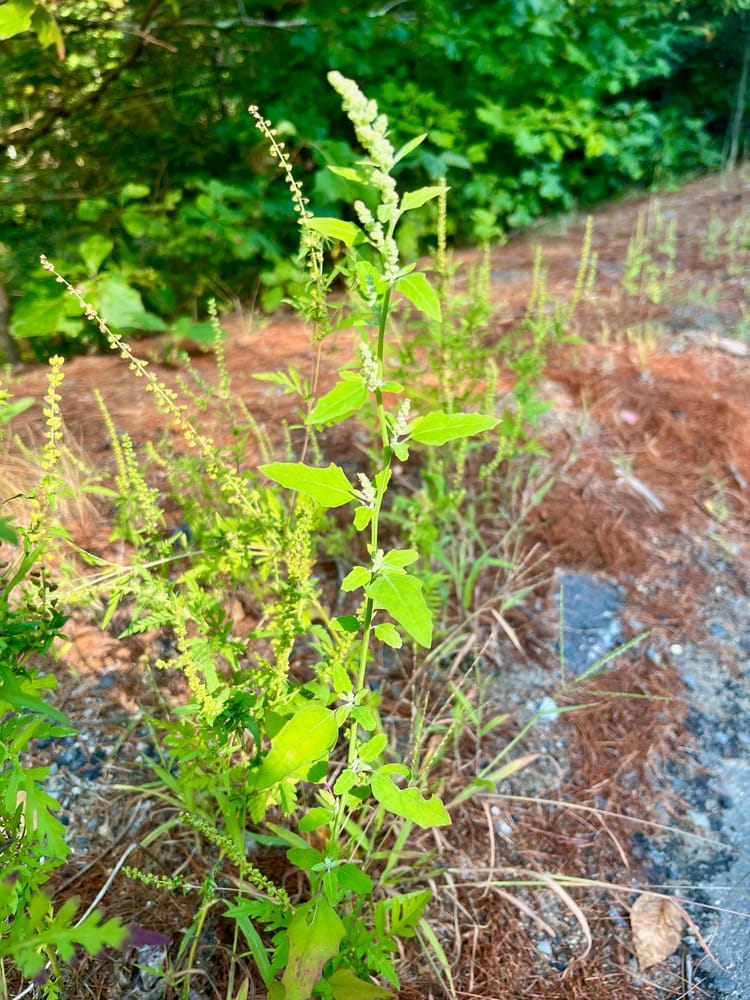
Member discussion